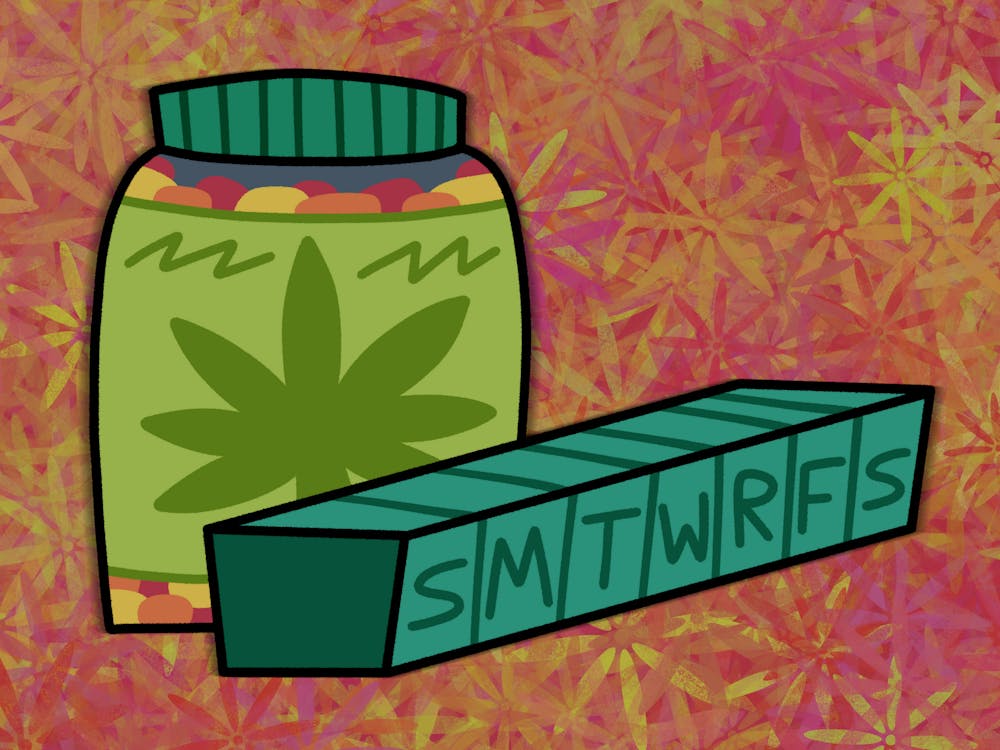There may be a promising new method for treating distress in those with memory loss: weed gummies, otherwise known as edibles.
The most common form of dementia, Alzheimer's disease, develops as nerve cells in the brain die, impairing cognitive function. As neural connections degrade, so does memory. Nearly 7 million Americans 65 and older are living with Alzheimer’s.
Navigating memory loss can be distressing. Between 8% and 71% of people living with dementia experience acute anxiety, and a small but growing number of them have turned to cannabis to take the edge off.
Some Gainvesille experts find hope in medical marijuana for alleviating certain dementia symptoms. Others remain skeptical.
Christina Ramos, executive director of Gainesville senior care service Touching Hearts at Home, said she works with clients taking medical marijuana to manage their dementia. One woman she treats was initially wary of her doctor’s orders — until she found relief.
Like Ramos’ client, some find tetrahydrocannabinol, or THC, the primary psychoactive chemical in marijuana responsible for inducing a “high,” helpful for alleviating their dementia-related anxiety and agitation.
Florida ballot measure Amendment 3, which would have allowed adults 21 and older without a medical card to purchase recreational cannabis, failed to pass Nov. 5. THC remains available only to those registered eligible, and dispensaries statewide sold more than 350 million milligrams of it last week.
Ramos said her client’s mood has improved since she began taking prescription cannabis gummies.
“We did observe her to be a little more jovial, a little more relaxed and laid back,” Ramos said. “It was apparent that she was certainly in a different frame of mind and not as worried or anxious as perhaps she was before.”
Doctors who prescribe medical marijuana for dementia have said it can temper irritability and provide comfort. But it's a last resort in many cases, mainly because research on its efficacy is limited.
UF clinical psychiatry professor Dimitry Davydow said rates of age-related illnesses are increasing faster than science can keep pace with. And when traditional drugs don’t make people feel better, they start looking for alternatives.
“I think that folks are kind of willing to try anything,” he said. “A lot of the things that are sold in dispensaries, they haven't been studied at all in folks with dementia.”
Davydow said ingesting high doses of THC can induce confusion and dizziness, which is potentially dangerous for those predisposed to hallucinations, anxiety and paranoia.
Considering the risks, he said he wouldn’t recommend medical marijuana to his patients, but many of them are likely taking it without his knowledge. Older adults, he said, may keep their consumption secret, fearing judgment.
“It’s probably pretty likely that there are people that I've seen who've been using it, but it's not something that people necessarily are overly excited to say, yes, they're doing that,” he said.
Most seniors who report using cannabis for medical reasons have said they told their family members, but only 41% said they’ve told their medical providers. That could change as public perception of marijuana evolves.
UF psychiatry professor Barry Setlow said adults of the baby boomer generation have started to soften on medical marijuana.
About nine in 10 Americans say they support the legalization of medical and recreational marijuana. Slightly more than half of adults between 65 and 74 feel that way.
“People who [were] at Woodstock now, they are over 65, and so it's more socially acceptable because it's something that even they experienced when they were younger,” Setlow said.
But that doesn’t mean he wants his aging parents to take cannabis. He said he’d be concerned THC could hamper their coordination and increase their risk of falling.
It could also meddle with other psychoactive drugs. Robert L. Cook, a UF epidemiology professor who’s researching marijuana's long-term effects, said adding cannabis to an array of other pills can make people with dementia feel more out of control.
Cook said some studies have shown cannabis to interfere with the body’s ability to metabolize medications, which can trigger delirium.
UF behavioral neurology professor Stephen E. Nadeau said the proliferation of medical marijuana has made his job stressful. When people start experimenting with cannabis, they may become less responsive to other medical interventions, he said, which hinders his ability to keep his patients mentally sharp.
“It's simply been a really irritating wild card because when I'm treating people and often using multiple drugs that act on the nervous system, whatever it is I'm using, I want to see them crisply alert,” he said.
People who’ve ingested abnormally high levels of THC can experience psychosis, but even a mild high can cloud judgment.
If a patient isn’t lucid in the doctor’s office, it’s challenging to determine ways to improve their condition, Nadeau said. And his ultimate goal is to maximize their quality of life.
Nadeau’s not sure cannabis is the answer, but he’s open to the possibility as it undergoes more clinical trials. If the drug can bring patients relief, he said he’d support it.
“It gives them hope, and if they've got hope, then there's a good chance they'll renew their investment in life,” he said.
Contact Natalie Kaufman at nkaufman@alligator.org. Follow her on X @Nat_Kauf.
Natalie Kaufman is the business enterprise reporter and a second-year journalism major. Outside the newsroom, you'll catch her drinking too much caffeine and running.





